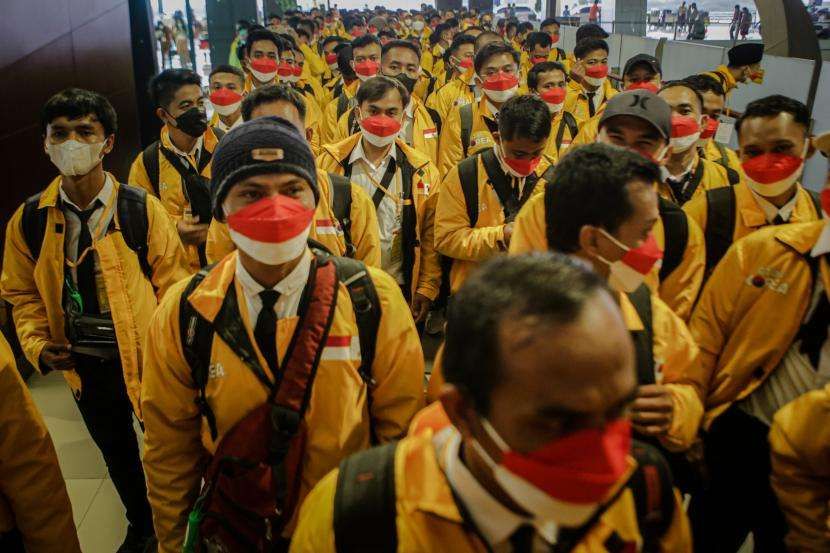Indonesia and South Korea have agreed to work closely to resolve major delays in the deployment of Indonesian migrant workers to South Korea. The talks were held between Mukhtarudin, Indonesia’s Minister of Migrant Workers Protection (P2MI), and Park Soo-deok, South Korea’s Acting Ambassador to Indonesia, during a meeting in Jakarta on Monday, October 13, 2025.
The meeting addressed a growing backlog involving thousands of prospective Indonesian migrant workers (CPMI) who are waiting to be deployed, especially those in the “service 2” or service sector. Minister Mukhtarudin confirmed that this issue will be one of the key topics in his upcoming discussions with the Ministry of Employment and Labour (MOEL) of South Korea.
Why are there delays in sending Indonesian workers to South Korea?
According to Acting Ambassador Park Soo-deok, the delays are largely due to South Korea’s economic slowdown, which is currently growing at only around 1% or less. He explained that the slowdown has affected several industries, especially the restaurant and service sectors, which traditionally employ many Indonesian workers.
To tackle the problem, the South Korean government has decided to expand the placement sectors to open more job opportunities. “In the restaurant sector, for example, we have expanded the coverage from about 10 or 100 cities to all cities in Korea,” Park said. He also added that the types of jobs available have increased, now including service roles such as waitstaff in addition to kitchen assistants.
Park mentioned that some workers currently waiting under the service 2 list will be reassigned to the manufacturing sector, provided they meet the necessary competency standards. “The Korean government decided to reduce the roster in the service sector and move some workers to manufacturing. This year, the service sector will not accept new additions,” he noted.
Minister Mukhtarudin welcomed the move, describing it as a positive step toward reducing the deployment backlog. He said the Ministry of P2MI would carefully study the proposed expansion before implementation. “We appreciate the efforts of the Korean government. Although it cannot be carried out immediately, this policy could be a long-term solution,” he said.
Also attending the meeting was Deputy Minister Christina Aryani, who highlighted that the potential for placing Indonesian migrant workers in South Korea remains large. She pointed out that other sectors — including construction (A7 visa) and agriculture (A8 visa) — offer promising opportunities.
“However, we still need more information from the Korean side about the available job opportunities and specific needs we can help fill,” Christina added.
The meeting between both governments marks an important step toward easing deployment challenges and strengthening cooperation on labour mobility. By expanding job categories and improving placement systems, both sides hope to ensure that Indonesian migrant workers can continue contributing to South Korea’s workforce while gaining stable employment opportunities abroad.

